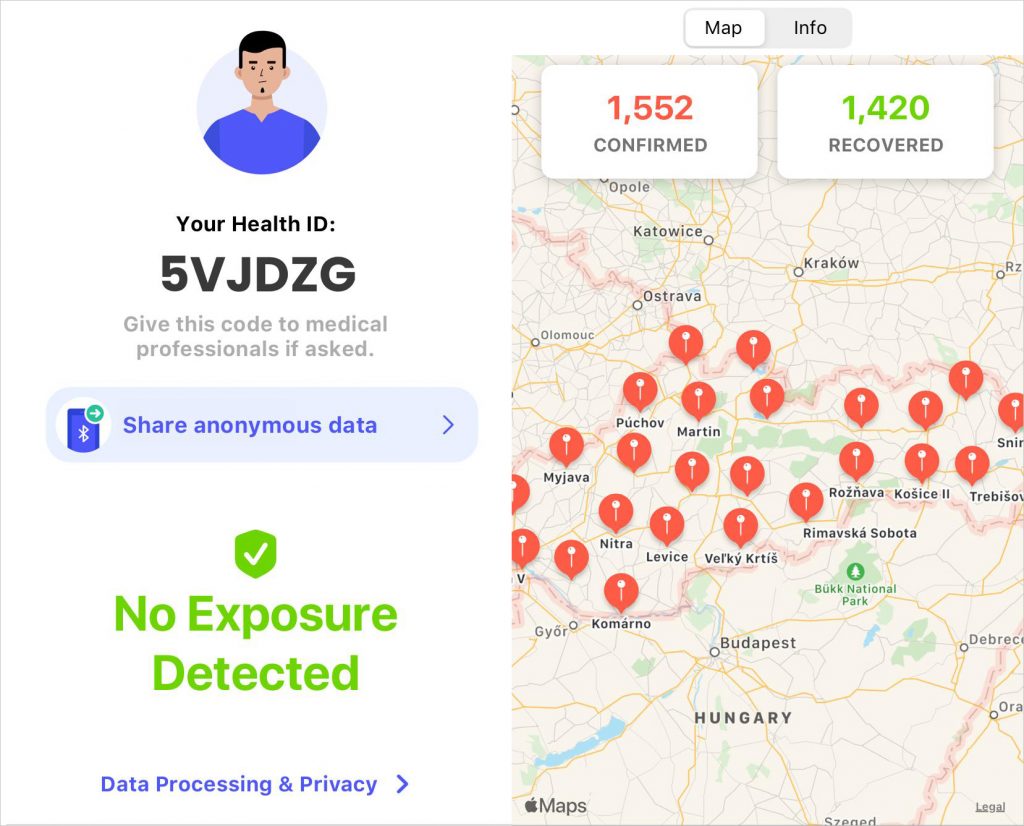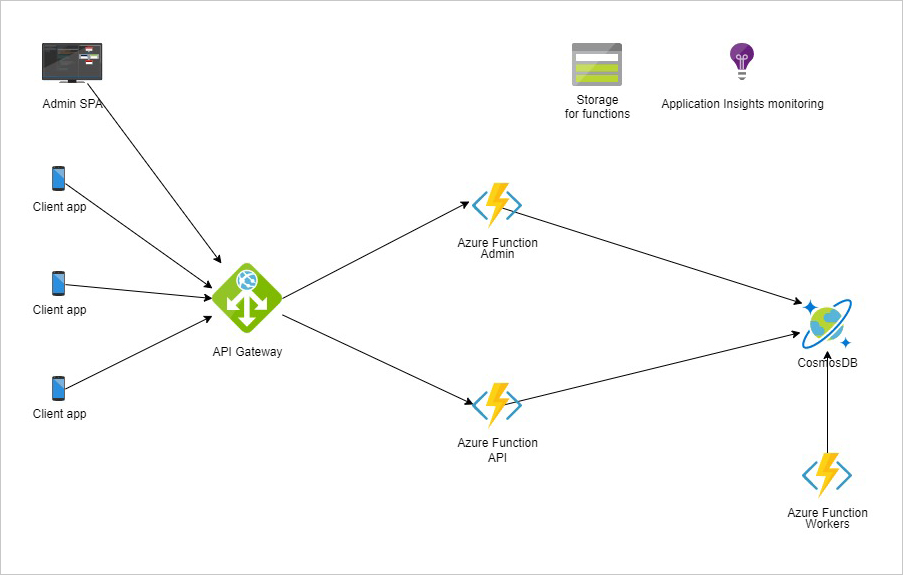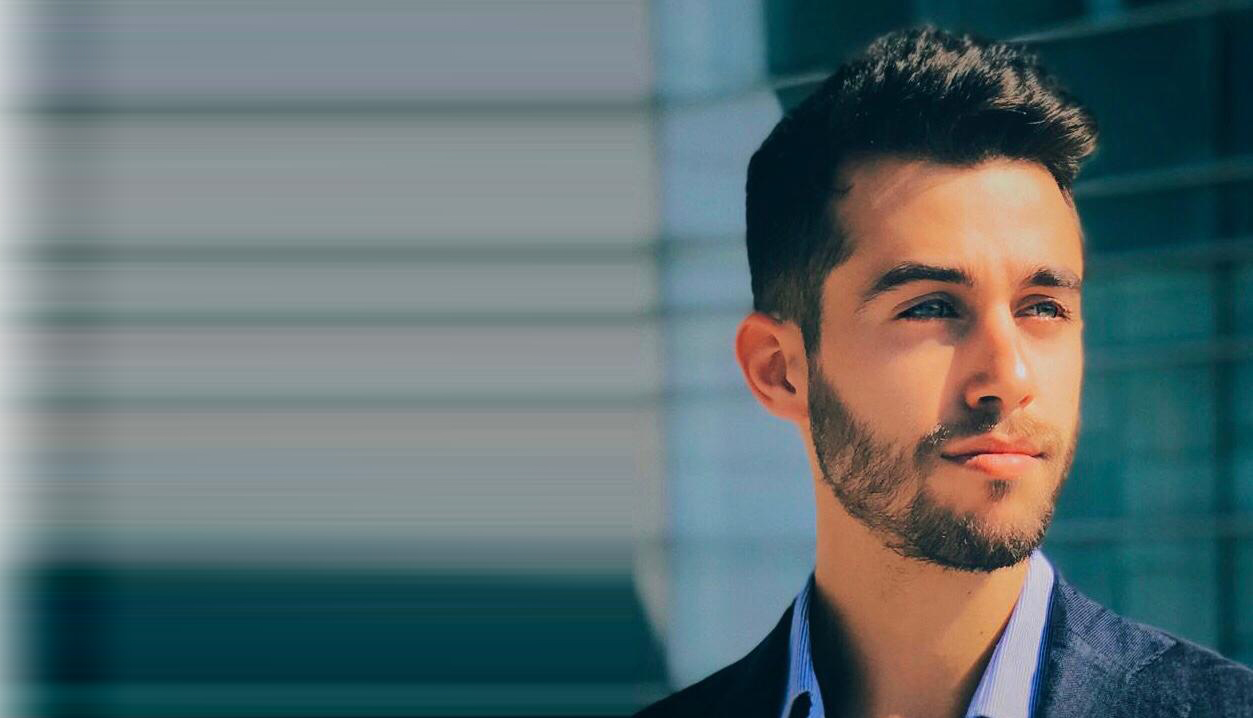A group of volunteers in Ireland, Slovakia, Portugal, and Brazil have joined hands with medical experts to create a “user privacy-respecting” application to help stem the tide of the coronavirus.
The team behind the free app—which is called “Covidian” and was first launched in Slovakia—says it has helped the country’s Health Ministry flatten the curve of new infections.
They now plan to make the application available in other countries, including Portugal, Mauritius, Madagascar, and Brazil.
“We use an advanced privacy-preserving algorithm to alert users who have had a risky exposure even if the person they were exposed to was asymptomatic,” Joao (Johnny) Cartucho, a member of the Covidian team and a Ph.D. researcher in augmented reality with Airbus, told Via News about the app that uses Bluetooth Low Energy.
Here are excerpts of the interview:
Would please tell us about the coronavirus tracking app that you have developed. How does it work? Who are the parties involved?
The goal on everyone’s mind is to resume life as quickly as possible after the COVID-19 pandemic. So our app helps us get there faster without compromising privacy.
What we do is we use an advanced privacy-preserving algorithm to alert users who have had a risky exposure even if the person they were exposed to was asymptomatic.
What this means is users will be notified by the application if they’ve been exposed to COVID-19, and this allows them to self-isolate and avoid infecting other people.
This helps contain the pandemic and speed up the return to normal life, which is our goal and everyone’s goal here.
The key is that by being alerted early, we can lower the risk of serious consequences as you can just seek medical help sooner and get tested sooner before having the chance to spread the infection.
We have a Ph.D. researcher on our team. We’re connected with Beta-i, which is Portugal’s largest collaborative innovation consultancy, and our CEO has a proven track record and has already launched two companies. Currently, we are in contact with the Portuguese government to move forward and launch our application in Portugal.

What has been done to comply with privacy laws? What user data is being tracked and stored?
The most important thing is that we do not track your location nor your movements. So we don’t touch GPS location. We don’t track your identity, your name, or your date of birth. We don’t track the identity of the people you come into contact with. We don’t take your telephone number, and we don’t have your email address.
Having said that, how do we use our algorithm to provide that contact-tracing value? We use Bluetooth Low Energy. Our app uses a completely randomly generated code that does not contain any information about you or your device. Also, this code changes every 15 minutes to ensure that it cannot be reversed and traced back to you.
All the data stored on your smartphone is encrypted. All the connections between the app and the server are encrypted. And all the data—whether stored on your phone or the server—is deleted when no longer relevant.
What kind of data can be extracted from the app? How can it help the medical and scientific community?
There’s a range, a spectrum of COVID-19 tracing applications. On the one hand, you have applications that preserve maximum user privacy and maximum user security. On the other hand, some applications preserve maximum information for government and health authorities.
The situation is that they are a little bit opposed to each other, which is to say if you have a lot of information for the health government, you may be also compromising a little bit of user security.
So on this spectrum of COVID-19 tracing applications, we had to make a decision: Do we wish to prioritize giving information to the government, or do we wish to prioritize user safety to ensure user adoption?
It was a hard choice. We wish to support the government, but we chose to prioritize user safety so that people will actually use the application and hence stall the development of the pandemic.
In which countries is your app available at the moment?
Currently in Slovakia where it has been met with great success, and we’re in talks with Portugal Mauritius, Madagascar, and Brazil to launch the application.
How has the application contributed to the fight against the coronavirus so far?
The application in Slovakia shows the story here. Slovakia has had the lowest death rate in the entire pandemic, and it’s definitely amongst the lowest in terms of infected cases in the eurozone.
The application has helped track and identifies clusters of infected people so these clusters can be isolated early. And, again, this goes back to the theme that early identification is the key, speed is everything.
Outside of Europe, we can look at South Korea, Singapore, and Israel. These are top countries outside of the EU who have used similar applications, and it’s been met with great success.
How do you plan to improve the app to make it more practical and effective?
The biggest obstacle in all of the COVID-19 tracing applications is adoption, which is to say people need to download the application for it to be effective.
Research indicates that between 30 to 60 percent of the entire population of a country must download an application to have an effective reduction in pandemic numbers.
What we’re doing is that we can completely jump this problem and not need the entire population to adopt the application for it to be effective.
The way that we do this is integrating with Apple and Google’s second phase API so this is a technology that is being released in the future quite soon.
What it does is that people don’t need to download an application. Especially for the elderly generation, it’s quite hard to get them to just sort of download the application setup.
Read more: COVID-19, a Shock Therapy in Education Sector
So what this new technology that we’re integrating with very soon enables is that all phones will receive an automatic update from Apple or Google. And, in this update, when they wake up in the morning, a little pop-up will come up on their phone saying: Your phone has been updated with the new COVID-19 tracing technology. Would you like to enable it? Yes or No?
So you’ll have the option and then if you tap Yes, you will automatically begin tracking your contact with COVID-19.
The key difference is that whereas before users would have to seek the application, go to the App Store, and have that process, all they have to do is pick up their phone in the morning, and it will say: Would you like to reduce your risk of contracting the virus? Yes or No. And you tap Yes, and you’re having a service.
To summarize that, we’re integrating with that service directly in our application so we’re sort of jumping that biggest obstacle. That’s by far the most practical and effective plan that we have to improve the efficacy of our application.

Is the app free?
100 percent. It’s completely free. We and hopefully many people don’t believe in profiting from the pandemic.
How has been the response to the app so far? Can you tell us how many people have downloaded it? How many users do you have?
The first iteration of the application has received more than 100k downloads in its first few days out of a population of 5.5 million. So we’re now seeing a significant portion of the population using it.
Many people are skeptical about tracking apps. How do you see the situation when it comes to health-related tracking apps? Are they less concerned? How do you think trust can be increased?
I think people have every right to be concerned about privacy, especially with technology companies. We can look at the Facebook–Cambridge Analytica scandal that happened quite recently.
Technology companies do not have a good track record of respecting your privacy. We believe that technology is like fire, which is to say fire can burn down a house or it can cook for an entire family.
Read more: Coronavirus Pandemic Will Weed Out Many Zombie Companies: eParkio Co-Founder
It’s just that normally there is no profit incentive to respect user privacy in that way. So we’re taking that stance. We’re building our application from the ground up to prioritize protecting user privacy.
This can be done with technology, and it is being done by ourselves. It’s just that in the larger global context, most technology companies have chosen not to build privacy-preserving technology.
What steps have been taken so far to launch the app in the countries that you mentioned?
In Portugal, we’ve had multiple calls with representatives from the Portuguese Health Ministry, and we are currently deciding the next steps to bring the app forward.
In Brazil, we’ve also been speaking with health representatives. And, via a Dubai connection, we’re also in contact with folks in Mauritius and Madagascar.
You mentioned that the app has been a success in Slovakia. Do you think the country can be a good example for others when it comes to regulating and using such apps?
So in March, it was the top third country after South Korea and Israel in terms of corona management.
We can look at Germany and the UK. They’re also using their applications that use a similar technology to our own. We think that contact-tracing applications are a good tool in this arsenal to fight against the pandemic, but they have to be built correctly.
I think the key here is having people feel comfortable using these applications, which is our primary focus.
In your opinion, are new regulations needed in the EU to deal with situations like this?
Absolutely. And I think the key is it depends on how the app is developed. So this comes back to that spectrum of COVID-19 applications: privacy-respecting and lots of privacy tracking.
I think that if you’re building from the start an application that is privacy-protecting, regulations are not so necessary. They’re not so crucial. Of course, they are important in a long-term vision, but there is no violation of privacy from these applications.
However, on the other end of that spectrum, the applications that choose to track much more data are putting the user at risk and, in those situations, I think that strong regulations should be put into place to prevent those types of applications from causing harm to users.
Is there any additional comment that you would like to make?
I wish to reiterate it’s important that everybody feels safe using these technologies. Our primary focus is sort of educating users to ensure they understand that technology can disrespect your privacy but also technology can be safe and it can respect your privacy. But it must be designed that way.
So we do wish to go against that Silicon Valley trend of sucking up as much data as possible because we believe that trust with users is the most important thing. If they don’t trust the app, they won’t download the app. If they don’t download the app, there will be no efficacy and we will delay resuming normal life after the pandemics.

